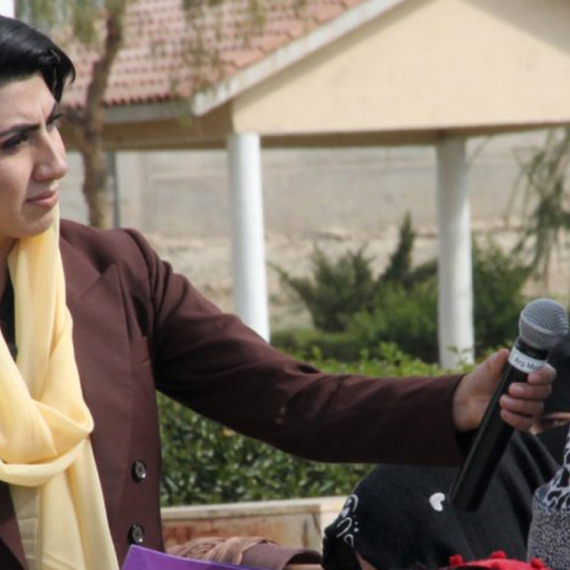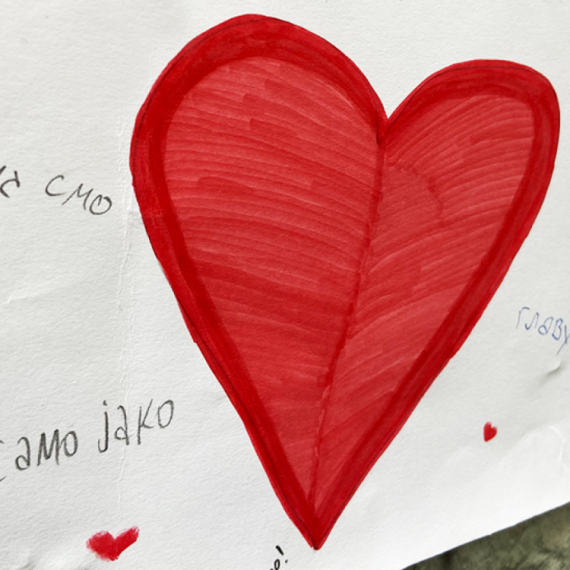“U.S. should be ready to act outside UN”
The U.S. Institute of Peace has published a document on Kosovo, suggesting measures to be taken after December 10.
Sunday, 16.09.2007.
10:46

The U.S. Institute of Peace has published a document on Kosovo, suggesting measures to be taken after December 10. The document named “Kosovo: Breaking the Deadlock” has been compiled by a group of twelve experts for the Balkans working for the government-funded Institute of Peace in Washington. “U.S. should be ready to act outside UN” The paper dismisses any notion of partitioning Kosovo, and advocates an urgent implementation of the Ahtisaari plan, should the ongoing negotiations yield no results. “The United States should be ready to take action even outside the UN framework,” the paper says. “The purpose of the document is to suggest ways to break the deadlock in the status settlement process, as no one of the authors of this paper believe the current situation is either good or sustainable." "We do not think that the negotiations have shown results and the main goal is to move forward,“ the vice-president of the Institute and the paper’s co-author, Daniel Serwer, told Voice of America. In his opinion, partitioning Kosovo would not be a good idea, neither for Kosovo, nor for Serbia and the rest of the region. Partition of Kosovo along ethnic lines threatens to destabilize the Balkans, in particular Macedonia, and to encourage nationalist rhetoric, especially in Bosnia. The Contact Group ruled it out from the start of the negotiations. The U.S. and EU should continue to reject partition definitively and forcefully. “If the Kosovo Albanians are forced to give up northern Kosovo, they will ask for the Presevo Valley. The partition concept is unacceptable for Serbia as well, since it refuses to let go of any part of its territory,” said Serwer. The experts concluded in the document that “it is preferable for the U.S. and EU to act together to bring stability to Kosovo. But waiting longer for a 27-member EU consensus is not a viable option and threatens to unravel the whole final status process, the report alleges.” The decision process foreseen in UN Security Council resolution 1244 has been completed, according to the paper. “The outcome is the Ahtisaari plan, which needs to be implemented. Neither the Russian veto nor Belgrade’s insistence on delay should be allowed to obstruct the international community’s decision on Kosovo.” Serwer explained that the independent Kosovo is a desire of the ethnic Albanians which would, in the event of a granted independence, come out as winners. He added that Serbia has already given up on administering Kosovo. “The term ‘maximum autonomy’ means that Belgrade does not want to rule Kosovo and does not regard the Albanians residing there as its citizens, rather the Kosovo Serbs who make up a small part of the population in the province,” he argued. “In that sense I believe that Serbia is not losing anything of its own, and it could prosper in its relations with the European Union without Kosovo,” he added. “If in the next ten years a number of countries recognized Kosovo’s independence, it would be good, since you already have countries that have not been recognized by all. However, the recognition of such a status on the part of the U.S. and its major EU allies would be a crucial headway,” concluded Serwer.
“U.S. should be ready to act outside UN”
The paper dismisses any notion of partitioning Kosovo, and advocates an urgent implementation of the Ahtisaari plan, should the ongoing negotiations yield no results.“The United States should be ready to take action even outside the UN framework,” the paper says.
“The purpose of the document is to suggest ways to break the deadlock in the status settlement process, as no one of the authors of this paper believe the current situation is either good or sustainable."
"We do not think that the negotiations have shown results and the main goal is to move forward,“ the vice-president of the Institute and the paper’s co-author, Daniel Serwer, told Voice of America.
In his opinion, partitioning Kosovo would not be a good idea, neither for Kosovo, nor for Serbia and the rest of the region.
Partition of Kosovo along ethnic lines threatens to destabilize the Balkans, in particular Macedonia, and to encourage nationalist rhetoric, especially in Bosnia.
The Contact Group ruled it out from the start of the negotiations. The U.S. and EU should continue to reject partition definitively and forcefully.
“If the Kosovo Albanians are forced to give up northern Kosovo, they will ask for the Preševo Valley. The partition concept is unacceptable for Serbia as well, since it refuses to let go of any part of its territory,” said Serwer.
The experts concluded in the document that “it is preferable for the U.S. and EU to act together to bring stability to Kosovo. But waiting longer for a 27-member EU consensus is not a viable option and threatens to unravel the whole final status process, the report alleges.”
The decision process foreseen in UN Security Council resolution 1244 has been completed, according to the paper.
“The outcome is the Ahtisaari plan, which needs to be implemented. Neither the Russian veto nor Belgrade’s insistence on delay should be allowed to obstruct the international community’s decision on Kosovo.”
Serwer explained that the independent Kosovo is a desire of the ethnic Albanians which would, in the event of a granted independence, come out as winners. He added that Serbia has already given up on administering Kosovo.
“The term ‘maximum autonomy’ means that Belgrade does not want to rule Kosovo and does not regard the Albanians residing there as its citizens, rather the Kosovo Serbs who make up a small part of the population in the province,” he argued.
“In that sense I believe that Serbia is not losing anything of its own, and it could prosper in its relations with the European Union without Kosovo,” he added.
“If in the next ten years a number of countries recognized Kosovo’s independence, it would be good, since you already have countries that have not been recognized by all. However, the recognition of such a status on the part of the U.S. and its major EU allies would be a crucial headway,” concluded Serwer.























































Komentari 22
Pogledaj komentare